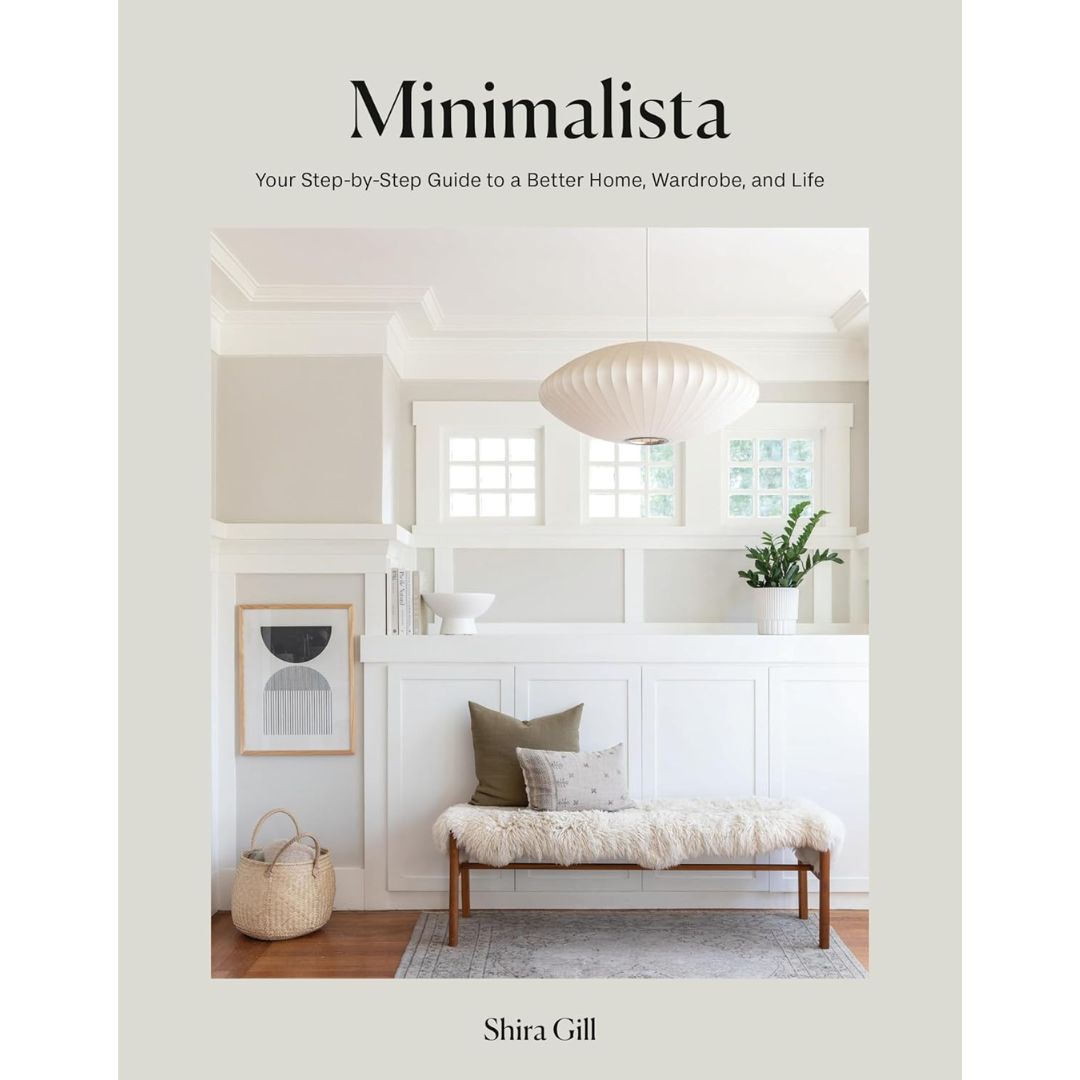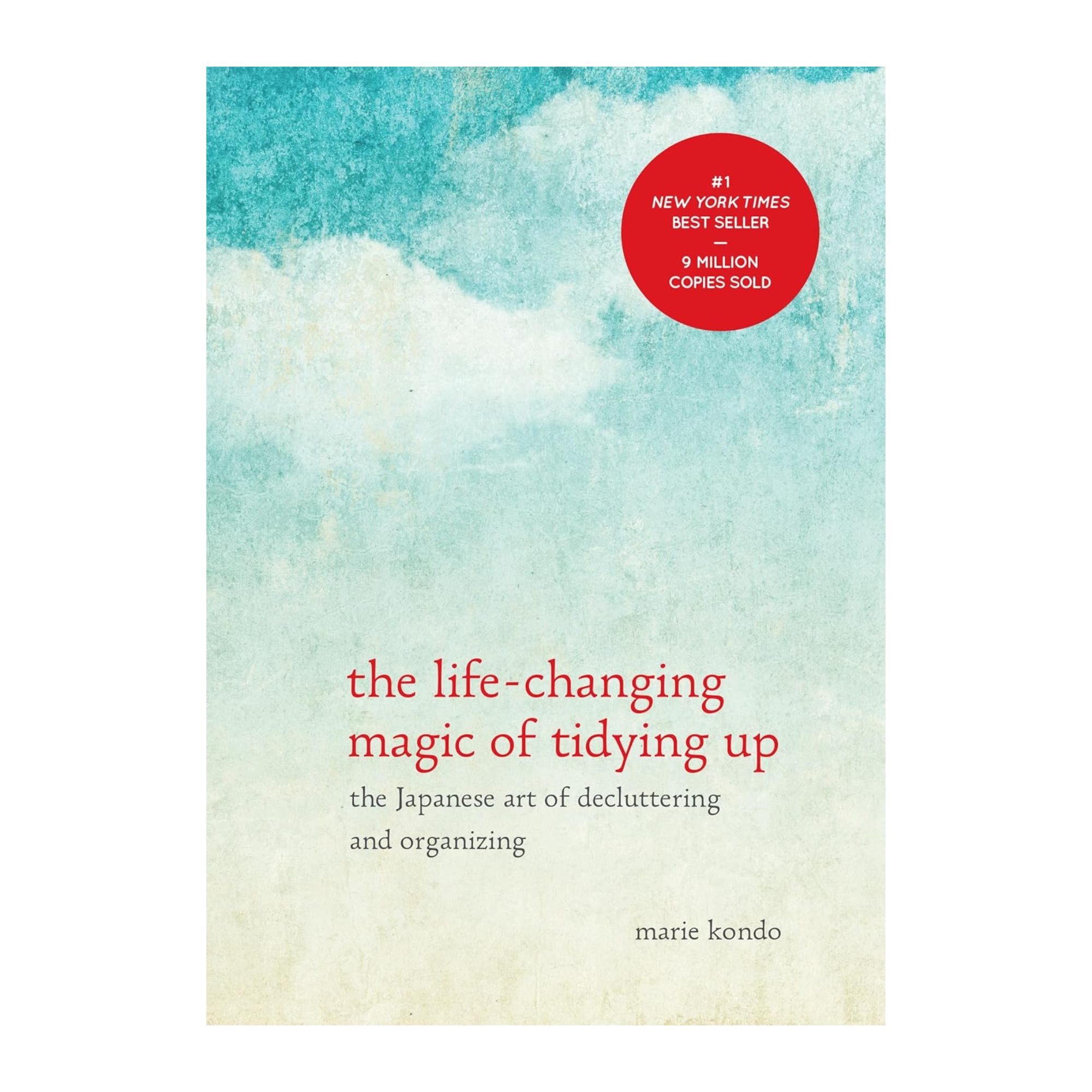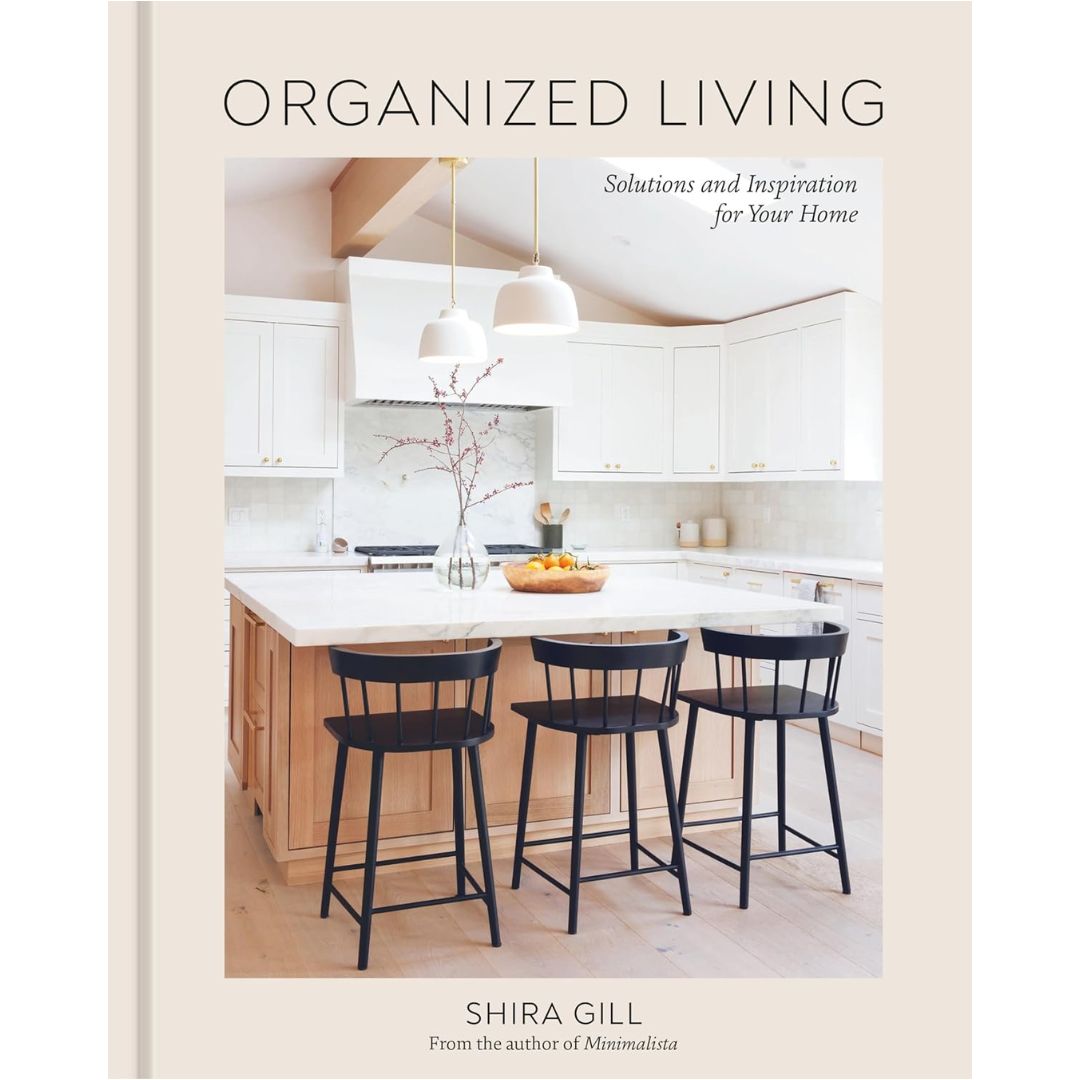5 Things This Decluttering Professional Says You Need to Let Go Of In Order to Have a More Organized Home
It can be hard looking at the mess you've accumulated over the years, so here are some steps you can take to make the journey a little easier


I often find when I go through moments of decluttering and organizing my home, the hardest part is actually letting go of things. Why is it that I can't seem to let go of items which no longer benefit me? Well, for me, sometimes it's sheer laziness or it's my attachment to those items. As I navigate the world of all things neat and tidy, I can't help but wonder, what should I really be letting go of?
Shira Gill, organizing expert and author of Minimalista and Organized Living tells me: 'Weeding through the piles can be time-consuming and emotional, but it doesn’t have to feel like getting a root canal. Remember to stay focused on keeping only items that improve and add value to your life. The rest is just clutter'.
Learning how to declutter your home, is the first step to a more organized space. So, without further ado, here are 5 things an organizing expert says you should let go of.
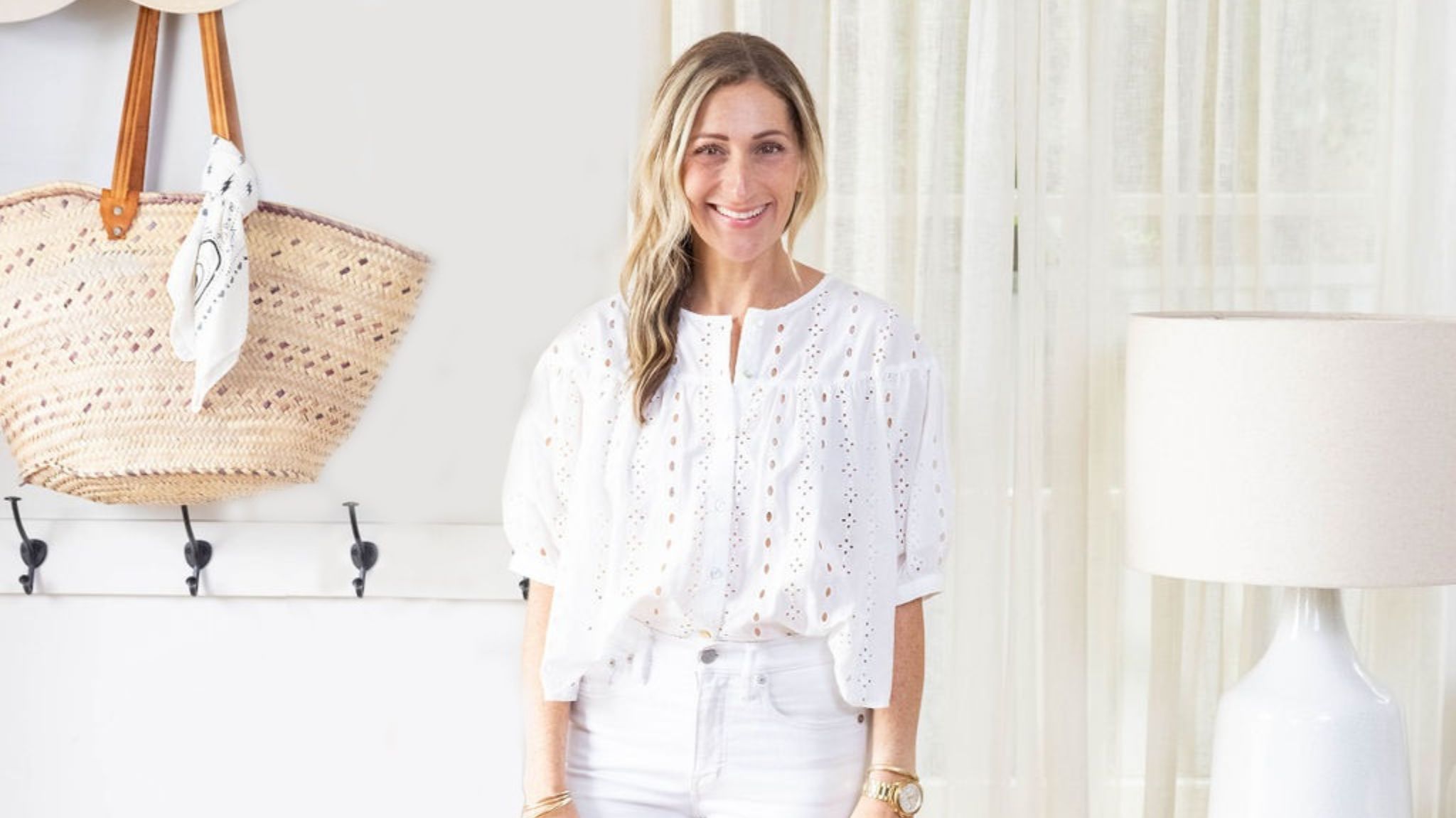
A globally recognized expert organizer and minimalist, Shira is all about letting go of the things that don't serve you, to create space for what does by clearing the clutter from your home, life, and mind. She is the author of two books, Minimalista and Organized Living, out now.
1. Things beyond repair

Yes, that's right... it's time to let go of those broken gadgets gathering dust deep inside your drawer.
Organizing expert and author of Minimalista and Organized, Shira Gill says its time to let go of things that are broken, damaged and beyond repair. She adds: 'Many of these items will have to go directly to the landfill, but you can always list them on a neighborhood or community group or try your local e-waste center for electronics recycling'.
2. Old Linens

As I journey through organizing a linen closet perfectly, I've made it a monthly ritual to check the lifeline of my linens, towels and rags. Slowly implementing this method has helped me learn more about taking care of my home and space.
Want a neater space? Shira says it's time to get rid of those sad raggedy sheets, stained, holey towels, dish rags, and kitchen towels. Instead she says, 'you can cut up old textiles to make cleaning rags, donate towels and blankets to your local animal shelter, and drop off everything else at your local textile recycling center'.
The Livingetc newsletters are your inside source for what’s shaping interiors now - and what’s next. Discover trend forecasts, smart style ideas, and curated shopping inspiration that brings design to life. Subscribe today and stay ahead of the curve.
3. Mystery items
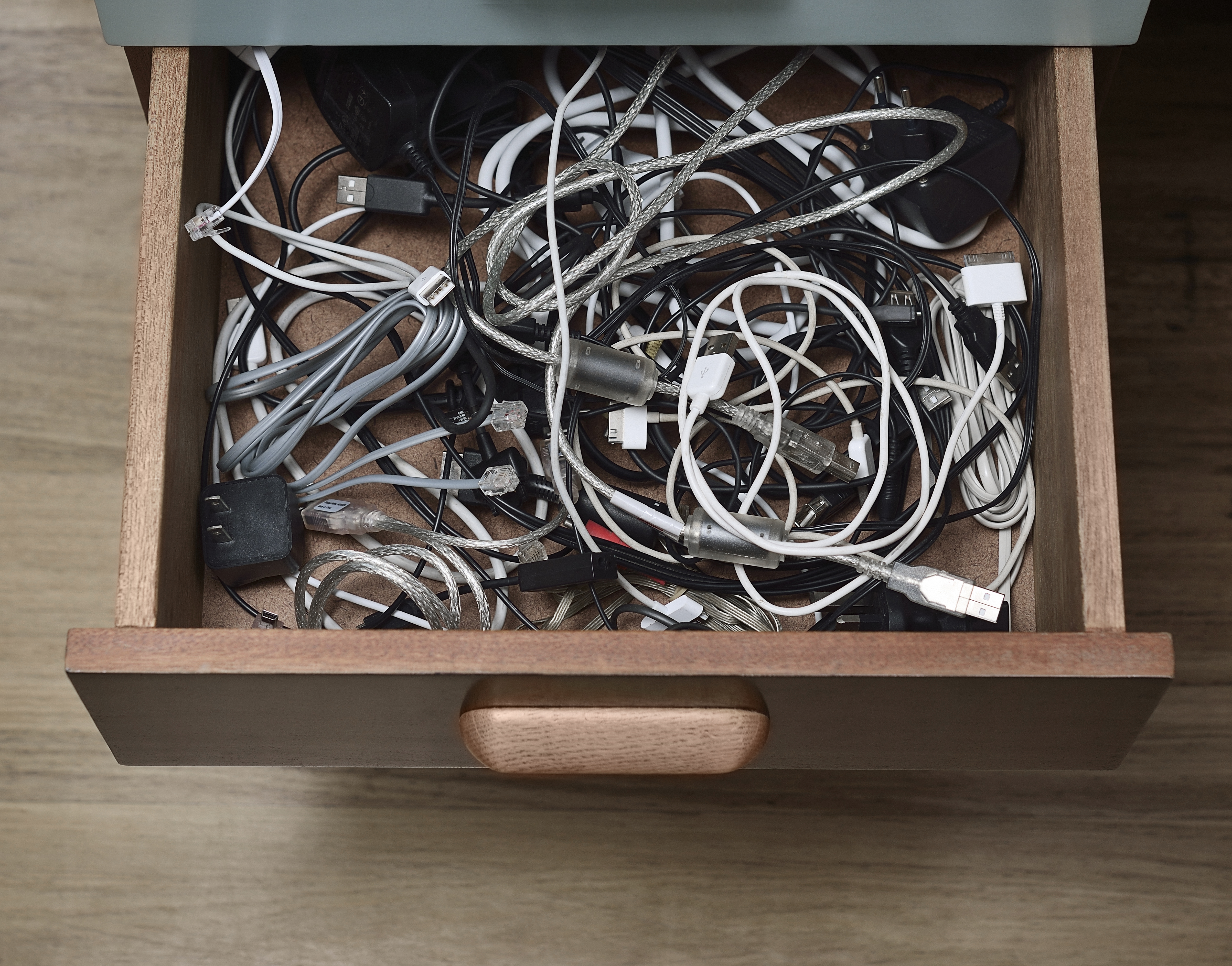
'If you don’t know what it is, you do not need to keep it,' Shira tells us. 'I’m talking to you: random cords, mystery keys, and old remotes and gadgets' Shira says the best thing to do with these items is to 'recycle or pass on what you can and drop cords or items with screens off at your local e-waste center'.
Now, I could not agree more with this one. Last week, after purging deep through my drawers, I found several cords that were no longer of use and I thought to myself, 'instead of dumping them in here, why did I not just dispose of them?' It's always the thought process that one day, maybe just maybe the abandoned cords would come to use. The reality is, they never did.
For the ones that are of use, it's important to understand how to organize cords in a living space — you can do this by using cord reels, cord clips and more.
Organizers to try
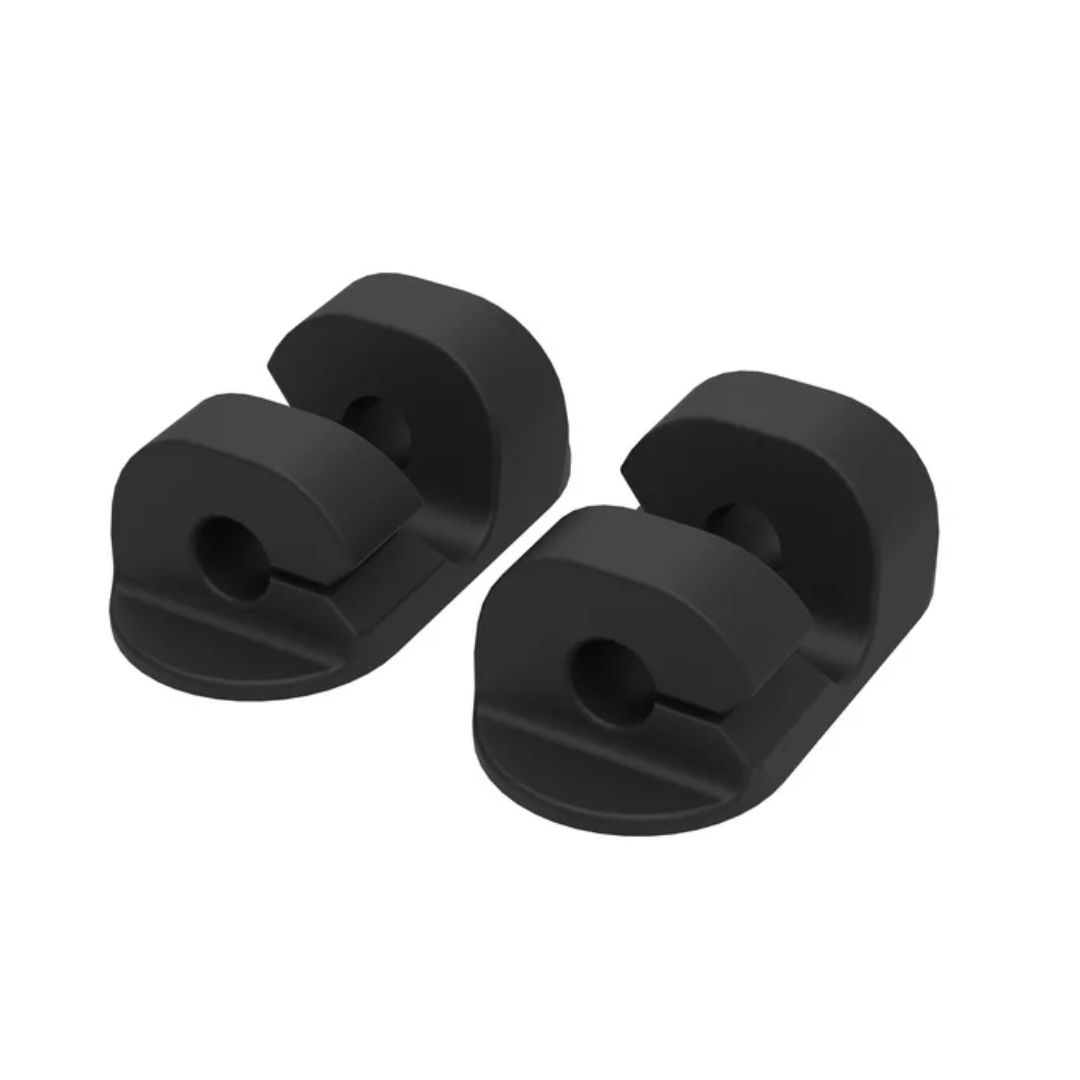
Price: $7.99
In the mood to organize your home office cords? This Scosche CMAA2-6PKRP Stick Em Adhesive Cable Management Organizer Clip from Walmart is ideal for keeping those messy cords in place with its simple cable management. Each cord clip has an adhesive back which allows for easy installation across many surfaces.
Best for: Organizing cords in your car, desk, living room and anywhere else.
Amount: Pack of 6
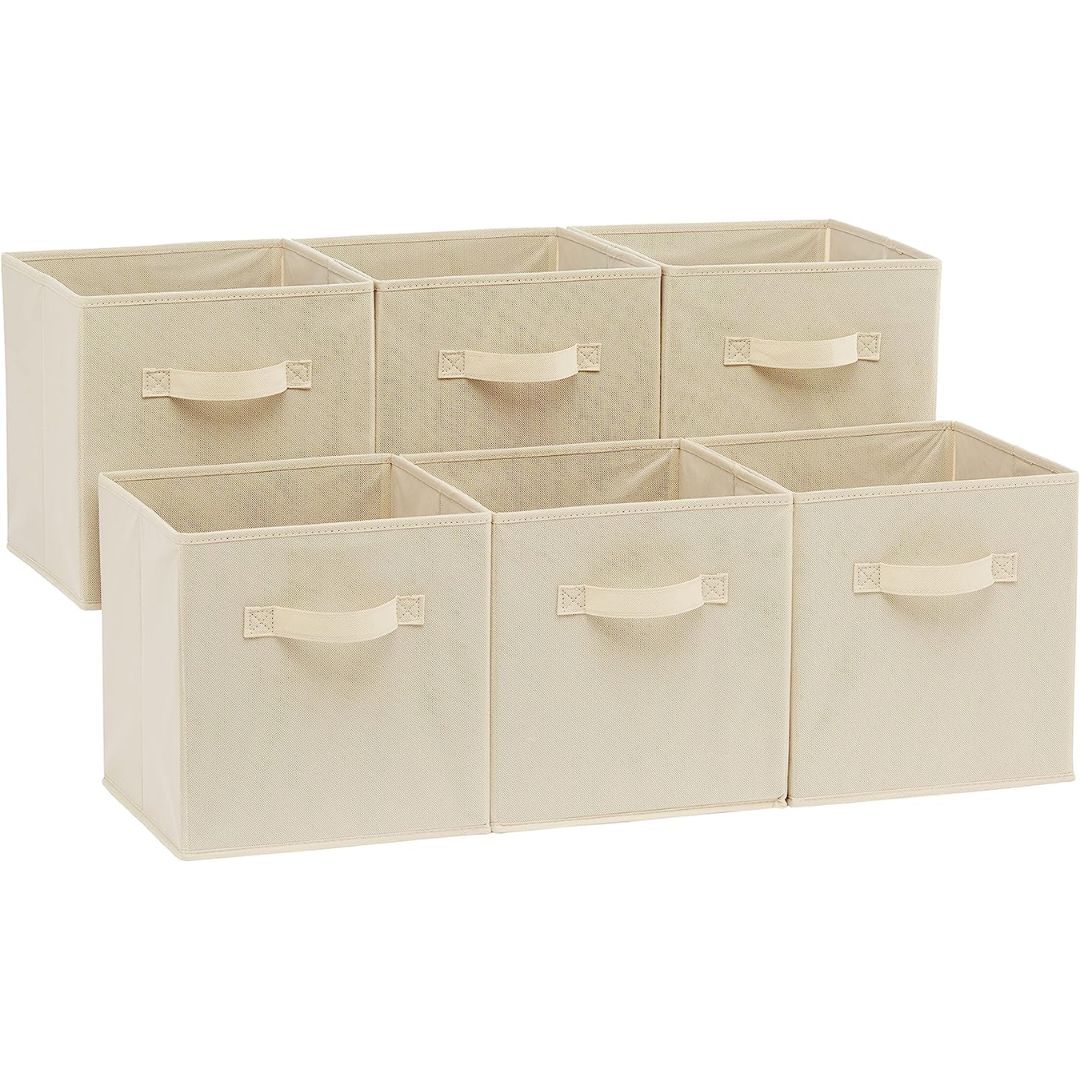
Price: $19.68
It's time to get more organized with this Amazon Basics Collapsible Fabric Storage Cubes Organizer with Handles. These storage cubes are perfect for storing away linens, towels as well as toys and other essentials. If you are in need of space in your wardrobe, then storage cubes are ideal for decluttering and organization. It's easy to carry and durable with its 2 sewn fabric handles — so you can move them around the house as you please.
Best for: Linen closest, laundry rooms and storage rooms
Amount: Pack of 6
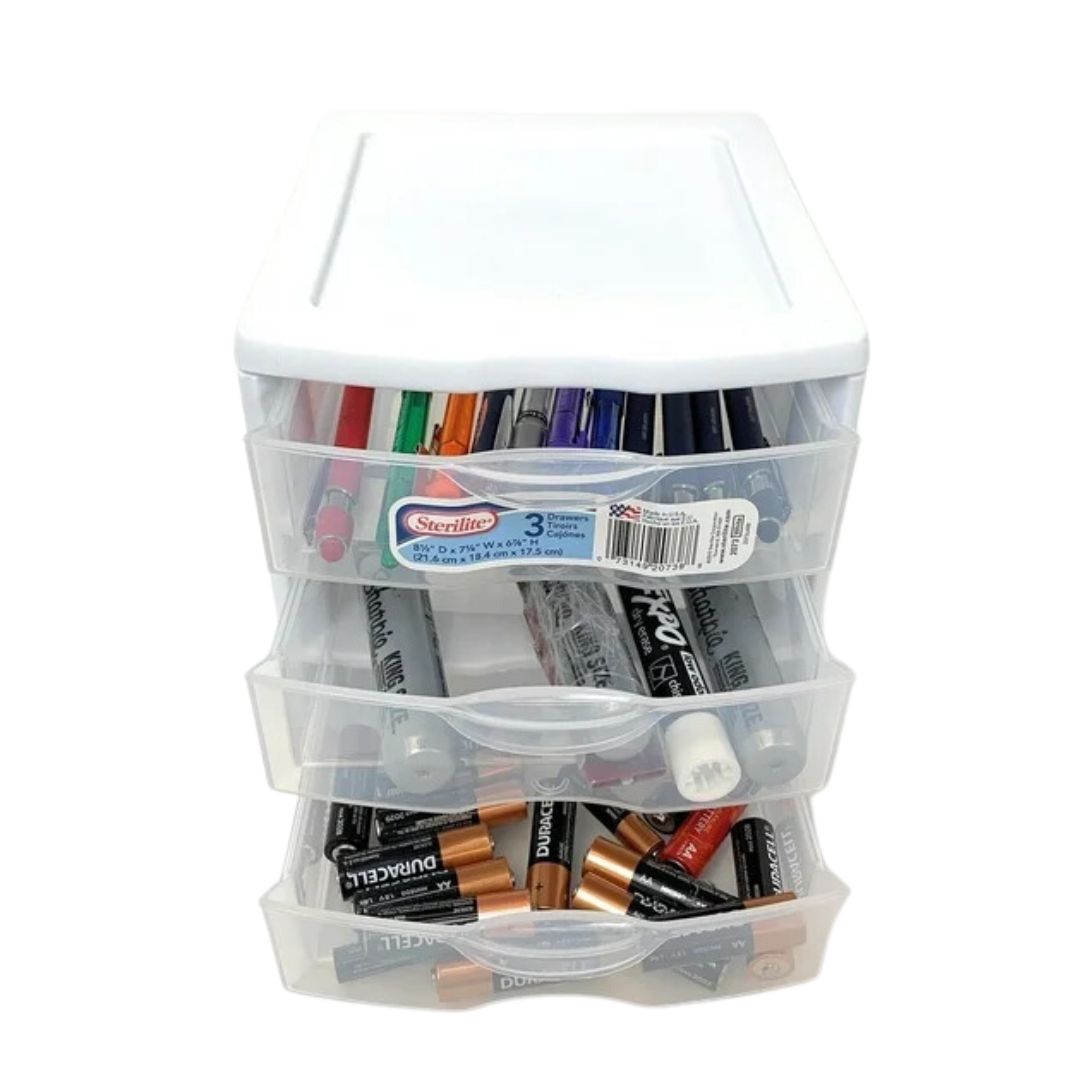
Price:$9.98
Was: $19
If you've got pens, papers and other bits and bobs hanging around loosely on your office table, it's time to make a change. This Sterilite Small 3 Drawer Desktop Unit from Walmart is ideal for keeping the little items organized. The drawers stack on top of each other to create customized storage solution in your home.
Best for: Organzing pens, paper, keys, mail and more
4. Things with missing parts

It can become a real bad habit dumping things into drawer and hoping to never look at it again, but eventually, it will all start to pile up. I'm speaking from experience here — I'm much in need of decluttering my junk drawer.
Shira says it's important to let go of things with missing parts. 'This includes puzzles, games, and anything else that’s rendered useless because it’s incomplete — even seemingly useless items can often be donated to creative reuse centers where teachers, artists, and creatives, can repurpose your bits and bobs'.
5. Unfinished projects and hobbies
The professional organizing expert says it's time to take a step into the right direction and 'free yourself from 'maybe one day' thinking'.
She continues: 'Finish a project within a timeline or free yourself and let it go. Pass it along to a friend or community member who might want to dig into your unfinished project or donate to your nearest thrift store or creative reuse resource'.
Tips on how to have a more organized home

'I always say that most homes have a volume issue rather than an organizing issue,' Shira says. 'The less you own, the less you have to clean, organize, maintain, and eventually dispose of! Letting go can feel hard, even paralyzing'.
Shira explains that if you want to let go of sentimental items, you should prepare ahead of time. She adds: 'It will be easier to let go of clothing, household items, non-perishable food, kids’ books, toys, and baby gear if you identify a charity or nonprofit in advance that can benefit from your editing efforts. It’s a win-win to be able to lighten your load and provide others with items they will be able to sell, use, or enjoy, so do a little research to identify the charities and non-profits in your area that you feel good about supporting'.
Here are some tips to get you started:
Focus on What You Want and Set Clear Limits
Think about the type of home you want, focusing on a goal will make the journey of organizing and decluttering much smoother. Shira tells us: 'If you focus on what you want to create for your home and life it makes it exponentially easier to let go of things that don’t serve your goals or vision. Focus on your endgame and let that vision guide your decluttering'.
As for setting clear limits, Shira notes that 'good editing is as simple as clearly defining your limits and then selecting your favorites. For example: I will pick my favorite books that fit on the 3-shelf bookshelf that I own. I will keep only the mementos that fit inside this bin. I will choose my favorite shoes that fit on my closet shelves'.
Ask Better Questions
If you're on the journey of making your space neat and tidy, Shira says it's important to ask the right questions during this process. 'If you’re going in circles trying to make decisions, you may just be asking yourself the wrong questions. Questions such as 'could this be useful one day?' or 'what if I need this?' will leave you spinning and paralyzed'.
Stuck or struggling? Shira tells us it's best to ask to following questions to get 'unstuck':
1. Does this item support and reflect the vision I have for my ideal life?
2. Is this item adding value or clutter to my daily life?
3. Would I buy this item for full price today?
5. Would it impact my daily life to not have this item?
6. Does this item energize or drain me?
7. Is this item really worth the space it’s taking up in my home?
8. Does this item reflect and support my core values?
9. Do I legally need to keep this item? (important documents and receipts)
10. Would I pack this item up and take it with me if I moved?
11. Could this item be way more useful to someone else?
Remember Memories Don’t Live in Items

During my teenage years, I used to have a memory box, hidden away deep under my bed. Stacks of receipts and random items that I had kept from certain moments which I felt were monumental at the time. After coming across the box in my early twenties, I could not help but laugh. The receipts and Items that I had kept, were no longer a positive force in my life and honestly, they never were. Instead, the box of 'memories' had just gathered dust and the reality is, it was just taking up space. For me, it was a little easier to let go of it. I know everyone's journey is different, so be sure to take your time with things and be kind to yourself during your organizing and decluttering process.
Shira tells us: 'It can be easy to feel like if you part with an item you also have to let go of the memory associated with it. The good news is that memories don’t live inside of your stuff – they exist in your brain and your heart. If you’re a very visual person, you may find it useful to snap a picture of your sentimental items before you part with them. The photographs can serve as a reminder of the people, accomplishments, or experiences you want to remember. All the memories, none of the clutter'.
Keep One Token From a Collection
'If you find yourself facing large collections from your past, consider picking one token item to keep,' Shira says. 'This can be a very effective space saving strategy if your storage areas are cluttered up with boxes of comic books, baseball cards, vintage clothes, or other collectibles.
The expert says you can also try to be a bit creative with things. She adds: 'I’ve had clients turn pieces of their childhood collections into art installations or quilts, or frame a single item in a shadow box frame to display in their home'.
Pass it On
It's time to move on and pass it on.
'When it comes to more valuable art or heirlooms, remember, it’s not doing anyone any good just collecting dust in your basement,' Shira explains. 'If you come across nicer items that you don’t have room to store or display, check in with friends and family members to see if they’d like to keep them. If you don’t have a taker in your inner circle, move on to your local community'.
She continues: 'Theaters, churches, community centers, non-profits, and schools are often in need of donations. Don’t waste time dwelling on sunken cost. It feels great to free up space in your home, and even better to be generous and have a positive impact.
Remember to take things one step at a time as you navigate decluttering and organizing your home. Speaking from personal experience, I know how hard it can be to let go of things. But once you take that step of letting go, your space and mind will feel a whole lot cleaner.
Our top 3 books on organizing and decluttering

Faiza is the Renovation Editor at Livingetc. She previously worked for The Independent as a News Feature Writer, where she crafted lifestyle, entertainment, and news stories. She also worked as an Audience Editor for the newspaper for almost two years. Thriving in the busy newsroom, Faiza also spent her time crafting stories for Sky News as an SEO reporter, where she produced stories based on trending topics. Lifestyle and interior design have been areas of interest for her for some time, and as she advances in this field, she will continue to refine her skills in all aspects of design. Faiza has a background in SEO, social media, and reporting. Her passion for writing goes beyond her work as she loves all things poetry and creative writing.
